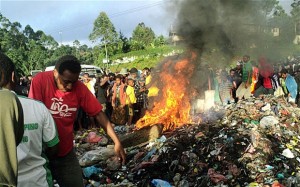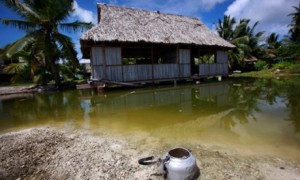By Lyndsey Kelly
Impunity Watch, Desk Reporter
WASHINGTON D.C., United States of America – On Wednesday, 4 June 2014, a lawsuit that alleges unconstitutional practices used by California’s Department of Corrections moved forward and was scheduled for trial. Originally filed in 2012, the suit alleges the solitary confinement of inmates in California violates the eighth amendment of the U.S constitution.

The suit is the latest in a series of actions taken by human rights activists to end the use of near-isolation in California. The practice of near-isolation keeps inmates with suspected ties to prison gangs in small concrete cells for a minimum of 22 ½ hours per day. There are nearly 120,000 inmates in the California prison system and 4,054 are held in solitary confinement for almost 24 hours a day. The rooms in which these inmates are housed are no larger than 100 square feet.
The focus of the lawsuit is the security-housing unit at the state’s notorious Pelican Bay prison. There, 539 inmates are currently being housed and 227 of them for more than ten years.
Federal Judge Claudia Wilken ruled that the inmates who have been housed in the Pelican Bay units for more than ten years can be part of the suit as a class action. The Judge divided the inmates into two groups, those who have the right to sue under the eighth amendment, which prohibits cruel and unusual punishment, and those who may sue under the 14th amendment, which protects a persons due process rights.
The U.S Justice Department has also paid particularly close attention to the poor conditions in Los Angeles County jails. A recent report by the U.S. Justice Department has said that the nation’s largest jail system has “serious systematic deficiencies” and “deplorable environmental conditions”, despite a 2002 court order that required the state to address the appalling conditions.
In a separate lawsuit, the Supreme Court declined on Monday, 9 June 2014 to hear an appeal of a court order that requires California to ensure that disabled inmates who are housed in country jails receive appropriate accommodations.
In her 2012 order, U.S. District Judge Claudia Wilken required the state to track 2,000 disabled inmates in its custody and report to county jails when an inmate who was entitled to accommodations under the Americans with Disabilities Act was transferred to country jurisdiction.
A report issued by the Justice Department noted that jail officials have failed to address a dramatic increase in suicides over the past two years stating, “fifteen suicides in 25 months produces almost no discernible changes in the jails’ custodial practices.”
The recent reforms in California have sparked other States to follow suit. On Thursday, 5 June 2014, Judge Stephen Reinhardt of the U.S. 9th Circuit Court of Appeals upheld a federal district court ruling that Arizona inmates can press a class- action claim against the state. The case echoes the prisoner civil rights cases that have kept California’s prison system under federal control.
For more information please see the following:
BBC – LA Jail conditions ‘ Unconstitutional’– 16 June 2014.
L.A. TIMES – Arizona Prison Litigation Echoes California Cases – 16 June 2014.
REUTERS – Lawsuit Calling Isolation in California Prisons Torture Moves Forward – 16 June 2014.
REUTERS – Supreme Court Refuses to Hear California Prison Overcrowding Case – 16 June 2014.


